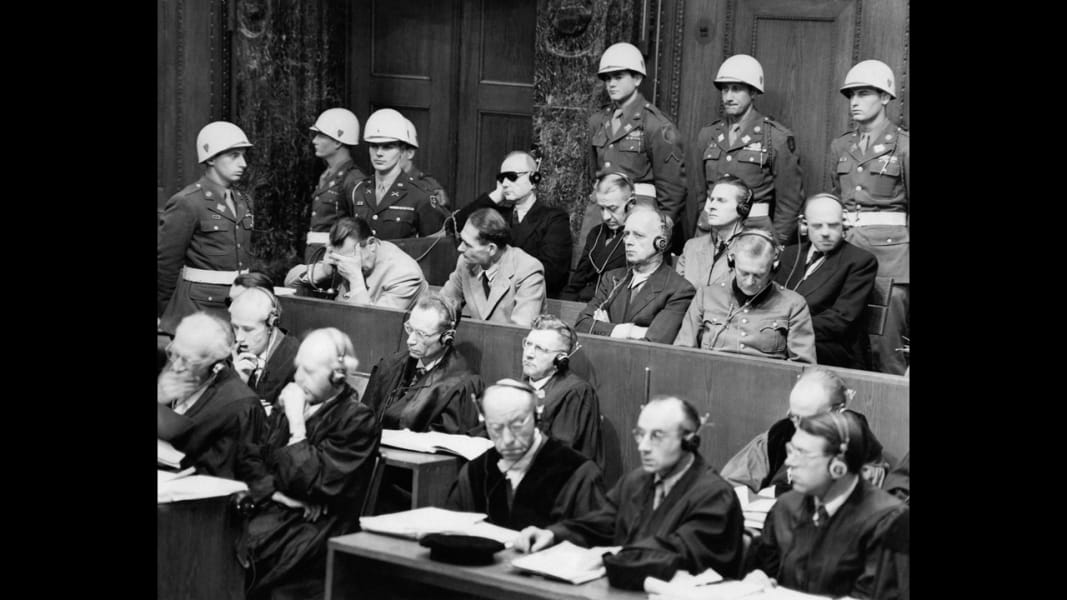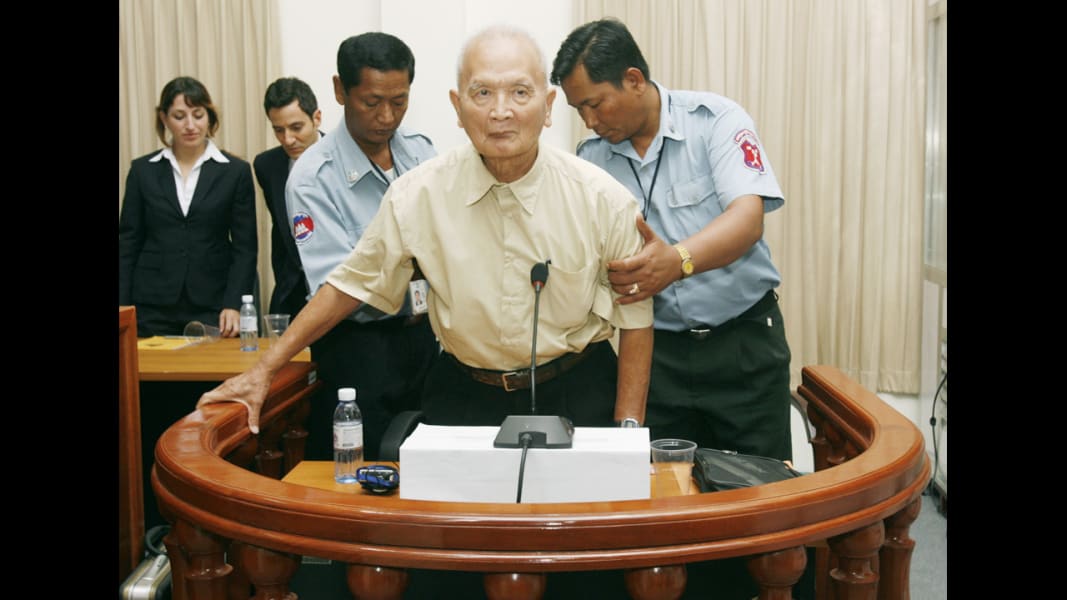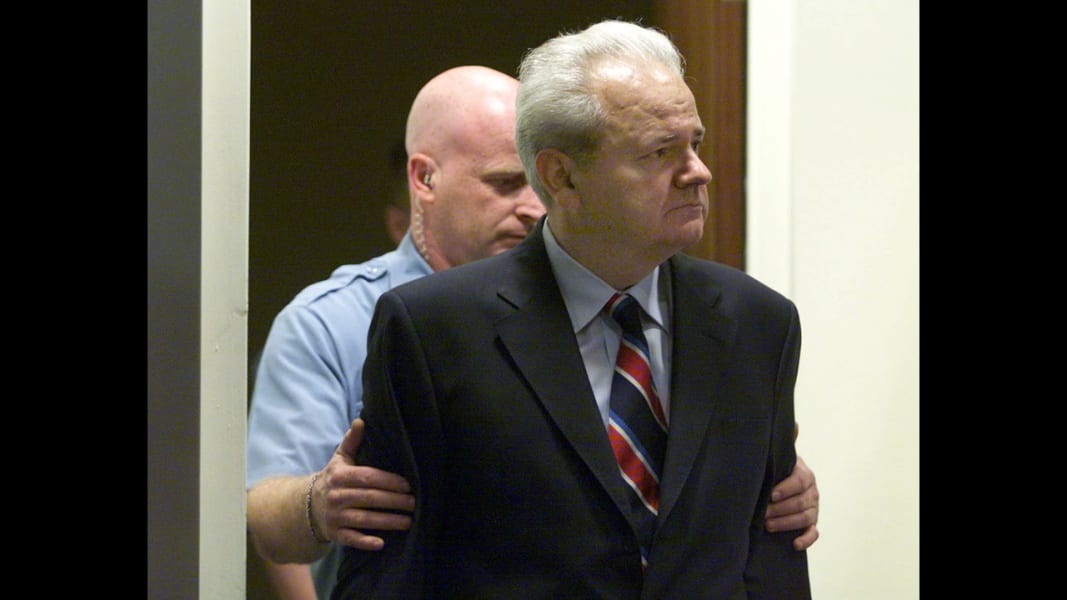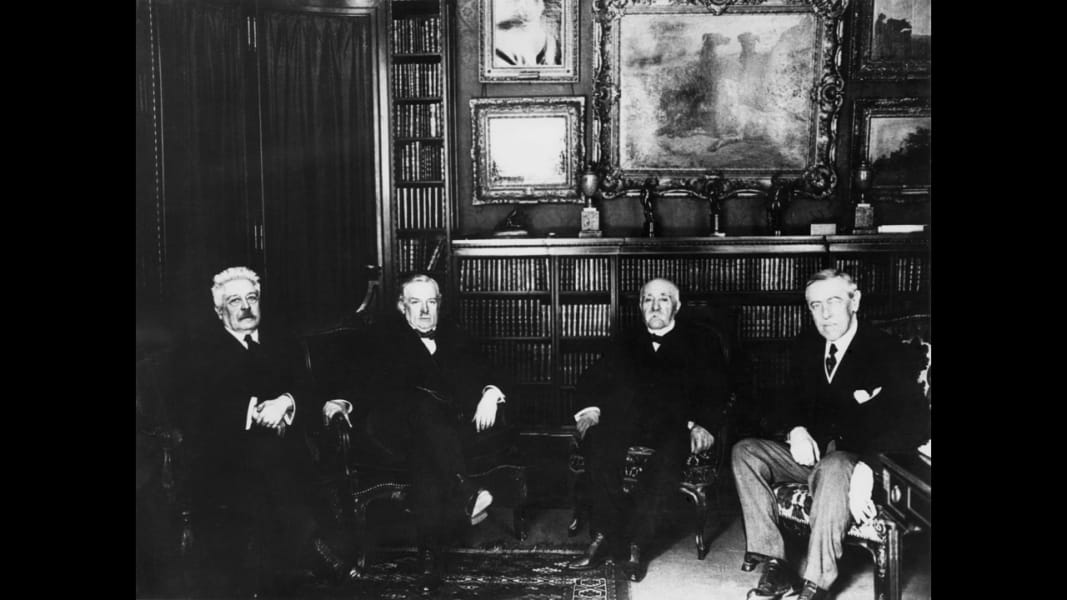Share
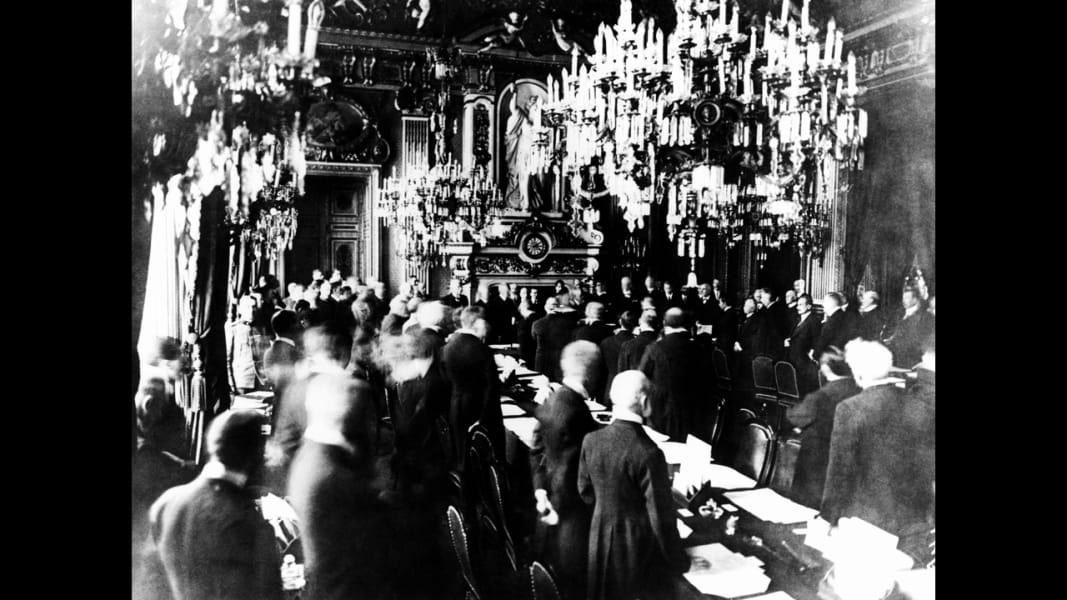

1 of 5
At Versailles Palace, representatives of Germany and the Allies sign the treaty that ended World War I, June 28, 1919. Article 231, the notorious War Guilt clause, required "Germany (to) accept the responsibility of Germany and her allies for causing all the loss and damage" during the war. AP
At the Paris Peace Conference, held earlier in 1919, some 30 nations convened to reach the terms of peace, but it was "The Big Four" who would hold sway on Versailles' terms. Left to right: Italian Prime Minister Vittorio Orlando, British Prime Minister David Lloyd George, French Prime Minister Georges Clemenceau and U.S. President Woodrow Wilson. AP
Versailles' collective punishment of a humiliated Germany is widely believed to have led to World War II, prompting a reorientation in international law: Guilty nations have been replaced by war criminals, prosecuted and punished by international tribunals. Here, German war crimes defendants sit in the Nuremberg courtroom of the International Tribunal after WWII. Hermann Goering, Rudolph Hess, Joachim Von Ribbentrop, Wilhelm Keitel (front row), and Karl Doenitz, Erich Raeder, Baldor von Schirach, Fritz Sauchel (second row). Mondadori Portfolio/Getty Images
Nuon Chea, a former leader in the Khmer Rouge reign of terror and right hand man to Pol Pot, gets help to stand up in the dock before a hearing in 2008 at the U.N.-backed Cambodian war crimes court in Phnom Penh. A verdict is expected in August on Chea's indictment over atrocities. Chor Sokunthea/POOL/AP
Former Yugoslav President Slobodan Milosevic enters the United Nations War Crimes Tribunal for the former Yugoslavia in The Hague in 2001. Milosevic was charged with war crimes, including genocide, and crimes against humanity in connection with the wars in Bosnia, Croatia, and Kosovo. His trial, which began in 2002, ended without a verdict when he was found dead in his prison cell in 2006. POOL/AP
